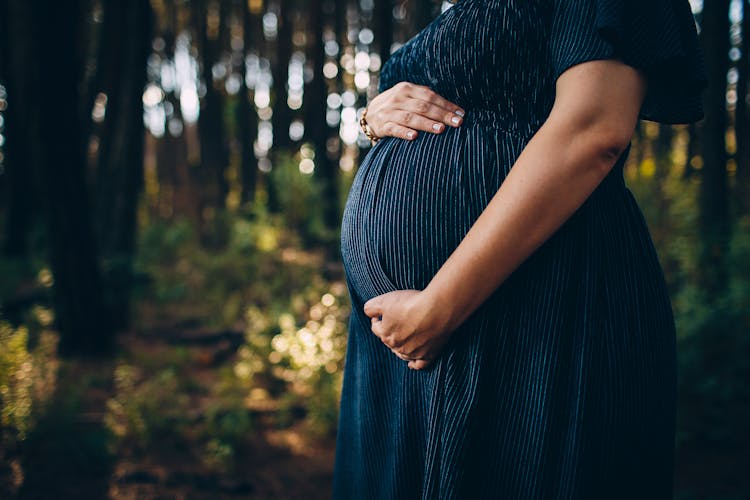All Categories
Featured
Table of Contents
- – How Raw Seafood Affects Pregnant Women
- – Choosing Safe Dairy Products When Pregnant
- – Understanding the Risks of Deli Meats
- – Essential Superfoods to Include in Your Pregna...
- – Hydration Tips for Expecting Mothers
- – The Importance of Professional Dietary Support...
- – Essential Eating Guidelines for Expecting Mothers
- – What are some safe seafood options during pre...
- – What dairy products should pregnant women avoid?
Summary: Maintaining a healthy pregnancy diet is vital for both mother and baby. Here are key points to consider:
- 🥗 Avoid raw and undercooked seafood for safety.
- 🧀 Choose pasteurized dairy products to prevent infections.
- 🌭 Heat deli meats thoroughly before consumption.
- 🐟 Include essential superfoods for optimal health.
- 💧 Stay hydrated for overall well-being.
Expecting mothers need to be aware of the importance of a healthy pregnancy diet. While focusing on superfoods like broccoli, spinach, kale, and salmon, it is equally crucial to avoid potentially hazardous foods to ensure food safety. Here are some crucial categories of foods and practices to consider during this transformative period.
How Raw Seafood Affects Pregnant Women
Raw and undercooked seafood, including sushi made with raw fish, poses a risk of foodborne illnesses that can harm both mother and baby. Certain types of fish, such as swordfish and shark, are often high in mercury, which can negatively impact fetal development. Pregnant women should avoid all forms of raw and undercooked seafood to mitigate these risks. Instead, opt for fully cooked fish like salmon, which is not only safe but also packed with omega-3 fatty acids essential for fetal brain development.
Choosing Safe Dairy Products When Pregnant
Unpasteurized dairy products, such as soft cheeses like feta, queso blanco, and brie, can contain harmful bacteria, including Listeria, which pose serious health risks during pregnancy. Infections caused by Listeria can lead to miscarriage or severe health problems in newborns. It's crucial to consume pasteurized dairy products, which undergo a heating process that kills harmful bacteria. Some excellent choices include pasteurized yogurt, cheese, and milk, which are safe and provide essential nutrients such as calcium.
Understanding the Risks of Deli Meats
Processed deli meats, including hot dogs and luncheon meats, can harbor Listeria and should be treated with caution. Pregnant women are advised to heat deli meats until steaming hot before consumption. This simple step can significantly reduce the risk of foodborne illnesses. In addition to heating, consider alternatives like freshly cooked meats or vegetarian options that are safe and provide adequate nutrition without the associated risks.
Essential Superfoods to Include in Your Pregnancy Diet
In addition to avoiding hazardous foods, pregnant women should focus on including superfoods for pregnancy in their diet. Folate-rich foods like fortified cereals, dark green leafy vegetables such as spinach and kale, and citrus fruits are essential for preventing neural tube defects. Calcium-rich foods, which are crucial for strong bones, include dairy products, leafy greens, and fortified plant-based milks. Iron-rich options such as lean red meat, poultry, fish, and iron-fortified cereals support the increased blood volume that occurs during pregnancy. Moreover, incorporating omega-3 fatty acids found in fatty fish like salmon promotes brain and eye development for the fetus.
Hydration Tips for Expecting Mothers
Adequate hydration is essential during pregnancy to support overall health. Pregnant women should drink several glasses of water each day to prevent constipation, urinary tract infections, and during times of increased physical activity. Consuming a well-balanced diet enriched with fruits and vegetables can also contribute to hydration. Consider incorporating pregnancy-safe herbal teas and clear broths for additional fluid intake.
The Importance of Professional Dietary Support During Pregnancy
As every pregnancy is unique, it's vital for expecting women to consult with healthcare providers for personalized dietary advice that considers their individual health needs and circumstances. Healthcare professionals can provide tailored guidance, including advice on managing cravings or addressing specific deficiencies in the diet. Utilizing a balanced approach to nutrition while avoiding hazardous foods can significantly contribute to healthier pregnancy outcomes.
By focusing on these superfoods and avoiding hazardous foods, expecting mothers can ensure a healthy and safe pregnancy diet. Always consult with healthcare providers for personalized dietary advice. For additional information on pregnancy risks, consider visiting this resource.
Explore supplements to aid in your pregnancy journey, such as Nature Made Prenatal with Folic Acid + DHA, which can support daily nutritional needs.
Essential Eating Guidelines for Expecting Mothers
Ensuring food safety during pregnancy can be daunting, but with proper knowledge and guidelines, it becomes easier. Expecting mothers should remain vigilant about their food choices to support their health and their baby's development. Remember, the journey of nurturing the new life inside you is profoundly rewarding, and prioritizing nutritious, safe foods along the way can help ensure a joyful experience.
What are some safe seafood options during pregnancy?
What dairy products should pregnant women avoid?

Examine topic thoroughly now
Table of Contents
- – How Raw Seafood Affects Pregnant Women
- – Choosing Safe Dairy Products When Pregnant
- – Understanding the Risks of Deli Meats
- – Essential Superfoods to Include in Your Pregna...
- – Hydration Tips for Expecting Mothers
- – The Importance of Professional Dietary Support...
- – Essential Eating Guidelines for Expecting Mothers
- – What are some safe seafood options during pre...
- – What dairy products should pregnant women avoid?
Latest Posts
The Ultimate Guide to Collecting Limited Edition Monopoly Games
Top Unique Monopoly Editions for Collectors
Avoiding Hazardous Foods During Pregnancy
Latest Posts
The Ultimate Guide to Collecting Limited Edition Monopoly Games
Top Unique Monopoly Editions for Collectors
Avoiding Hazardous Foods During Pregnancy